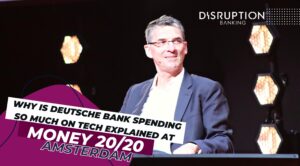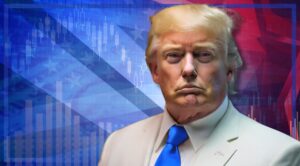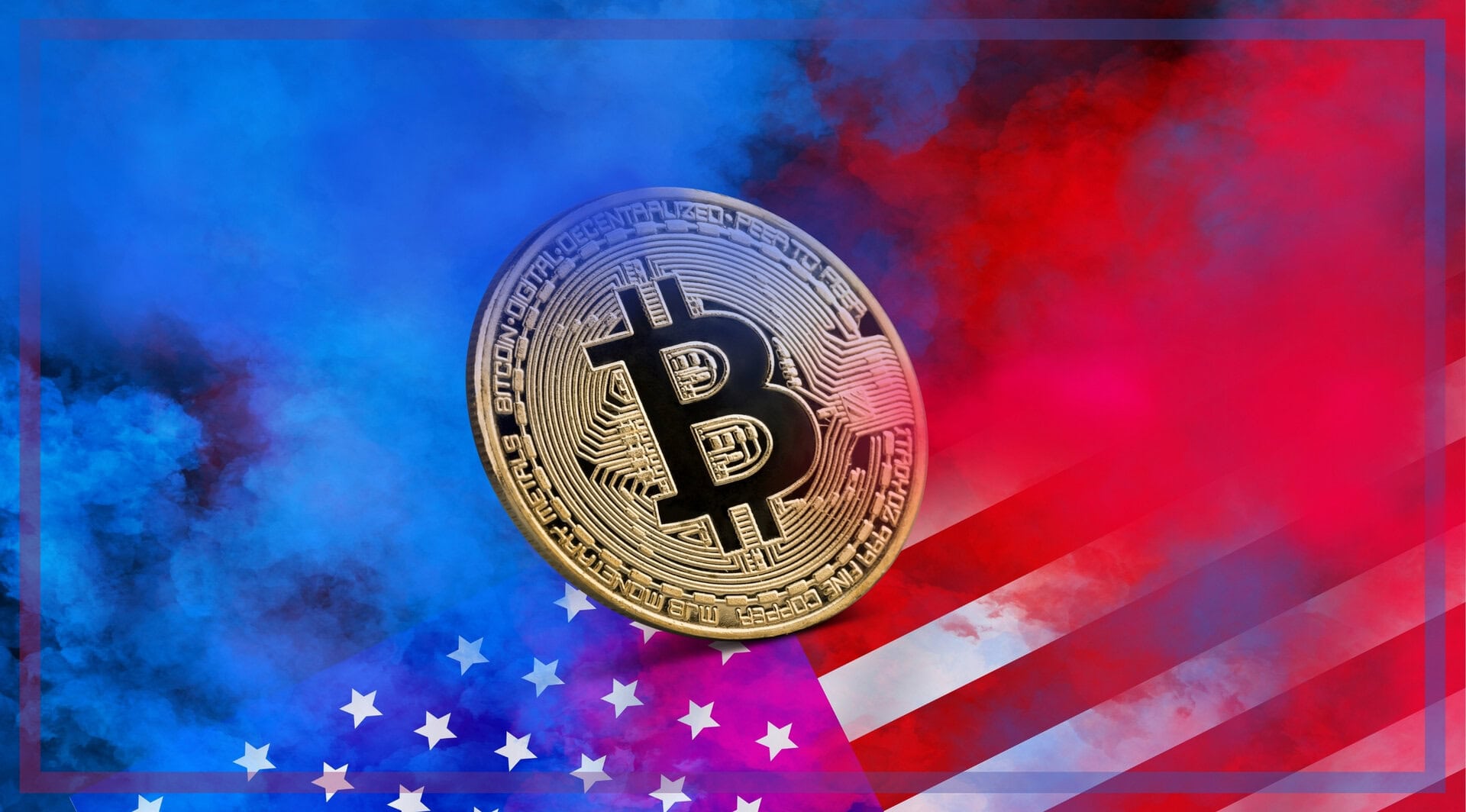There has been a lot in the news about Gary Gensler, the SEC and BlackRock’s Bitcoin ETF in the last few weeks. At the same time a lot of important things have been taking place in Hong Kong. Specifically in the digital assets space. In case you missed it. HSBC in Hong Kong started offering trading of crypto-linked exchange traded funds to customers a few weeks ago.
HSBC is offering trading of #crypto-linked exchange traded funds to customers in #HongKong amid a push by the city to establish itself as a hub for the alternative asset class. #ETFshttps://t.co/CEjFDdok2h
— #DisruptionBanking (@DisruptionBank) June 28, 2023
What has brought about this sudden U-turn by one of the biggest banks in the world, and the biggest bank in Hong Kong? A few different things.
In January the Hong Kong government initially outlined plans to become a hub for digital assets. Then in late April a round-table took place at the Hong Kong Monetary Authority “to facilitate direct dialog” and “share practical experiences and perspectives in opening and maintaining bank accounts,” according to details of the event seen by Bloomberg News.
Is Hong Kong really becoming a digital assets hub?
On the 1st of June Hong Kong announced its new regulatory regime for crypto or digital assets. This move underlines the city’s desire to create a digital asset hub. Companies including Huobi, OKX and Amber Group are all looking at the new opportunities that are arising from the move.
The news didn’t end there, though.
Hong Kong’s #banking regulator is pressuring lenders including HSBC and Standard Chartered Bank to take on #crypto exchanges as clients, even as US regulators crack down on the industry.https://t.co/V7RIbl52tp
— #DisruptionBanking (@DisruptionBank) June 15, 2023
The Hong Kong Money Authority (HKMA) encouraged banks not to be afraid. The HKMA wrote to the banks who were reluctant to onboard some digital assets companies due to money laundering concerns. This included HSBC, Standard Chartered and Bank of China.
A few weeks later HSBC officially announced that it was offering trading of crypto-linked ETFs. But there is more. Hang Seng Bank, majority owned by HSBC, has launched the first NFT wallet for customers in the retail banking industry known as “HS3”:
In addition to promoting #greenbanking, Hang Seng joined force with local artists, including Chow Lee, Wai Wai, Tsui Brothers & Stella So on the latest eco-friendly #NFTs (non-fungible tokens) to continue to support local Creative Industries. https://t.co/ks8wotIvkv pic.twitter.com/NjhCNNN65O
— #DisruptionBanking (@DisruptionBank) July 18, 2023
To make things even more interesting, pro-Beijing lawmaker Johnny Ng, who is also a member of China’s top political advisory body, invited Coinbase and other crypto exchanges to set up in the city.
What is the Market reaction to what is happening in Hong Kong?
Brian Armstrong, the CEO of Coinbase, is perhaps the leading voice in discussions about crypto regulation. In an almost constant state of uncertainty with the SEC, the crypto exchange works with leading institutional investors in the U.S. And Armstrong is not keen on China.
In a story published on MarketWatch from late May this year, Armstrong warned about how restrictive U.S. crypto policies will benefit China.
“China aims to directly challenge the U.S. dollar and its role in global commerce. Given these moves and China’s strategy to leverage financial technology to project its own national interests, it should come as no surprise that Hong Kong is positioning itself as a global crypto hub,” Armstrong wrote.
Most of the rest of the digital assets space is more bullish on what is happening in Hong Kong. Especially following the recent Beijing white paper on Web3.
CZ of Binance, Huobi adviser and TRON co-founder Justin Sun as well as Animoca co-founder Yat Siu all had positive comments to make on the move by China.
“It signals what Hong Kong has always been, a financial centre that acts as the financial intermediary and gateway in (and) out of China, and digital assets will work the same way,” Siu shared. “Hong Kong, we believe, will experience a talent and innovation boom embraced by the potential of Web3 and has a chance to lead in this category not just regionally, but globally.”
If you are HSBC your stance may be closer to that of Coinbase’s CEO Armstrong. But there are more challenges that global banks like HSBC and Standard Chartered have to consider. Namely, the FATF.
What is the FATF?
The Financial Action Task Force (FATF) is one of the organizations watching what is happening in Hong Kong closely. The organization has put in place guidance about digital assets and money laundering that it expects countries to follow.
Lack of regulation of virtual assets in many countries creates opportunities that criminals and terrorist financiers exploit.
— FATF (@FATFNews) June 21, 2023
The FATF is closely monitoring global implementation of its strengthened requirements for virtual assets.
Learn more➡️https://t.co/rDuXbjpJh7#FATF pic.twitter.com/3HuZIbT4ZK
Important for Hong Kong is what happened last March. It was then that the UAE was added to the list of jurisdictions under increased monitoring (Grey List) by the FATF. Just as Dubai was starting to become a crypto hub. Other jurisdictions on the list include Croatia, DRC, Cayman Islands, and several others. The big problem with the Grey List is how it could affect the banks. Banks like HSBC or Standard Chartered who are now offering onboarding facilities to crypto exchanges. How will the FATF view this?
A grey list jurisdiction means the country is under increased monitoring. It applies to countries that are actively working with the FATF to address strategic deficiencies in their regimes to counter money laundering, terrorist financing, and proliferation financing. The FATF shared in April that “the lack of regulation of virtual assets in many countries creates opportunities that criminals and terrorist financiers exploit.” How will they view the regulation of digital assets in Hong Kong?
Why could Hong Kong be an issue for FATF?
Consider the story of Bitzlato. In 2022 the cryptocurrency exchange was shut down by U.S. and German law enforcement. The US Treasury Department’s Financial Crimes Enforcement Network (FinCEN) labelled Bitzlato Ltd a “primary money laundering concern” related to Russian illicit finance. The company had been registered in Hong Kong.
This isn’t the only problem. Last year the police in Hong Kong shared how on average, fraudsters claim a cumulative $2.5 million (USD) per day from Hong Kong. And the number of scams is growing.
To summarize, it is a huge step forward for Hong Kong and China what has happened in the city over the last few weeks. Some commentators have also suggested that it could lead to a bull run for bitcoin. But, whilst the global digital assets landscape gets used to the idea of a new crypto hub, we must wait to see what happens next.
HSBC is clearly doing what it needs to do to appease local regulators. However, it has a global customer-base to consider as well. As well as other regulators who may not be so open to what is happening in Hong Kong.
One thing is clear though. Digital assets, virtual assets, or crypto are not going away. And we are seeing a new shift in adoption. A shift that will definitely continue as BlackRock’s Bitcoin ETF attests to.
Author: Andy Samu
#HSBC #Bitcoin #Coinbase #Binance #StanChart #HangSeng #OKX #Huobi #HongKong #DigitalAssets #VirtualAssets #Crypto #HS3 #Web3
See Also:
Why HSBC Ventures works with later stage Fintechs | Disruption Banking
Two Currencies One Nation with Invest Hong Kong | Disruption Banking
Why is Hong Kong the new market for meme stocks? | Disruption Banking















